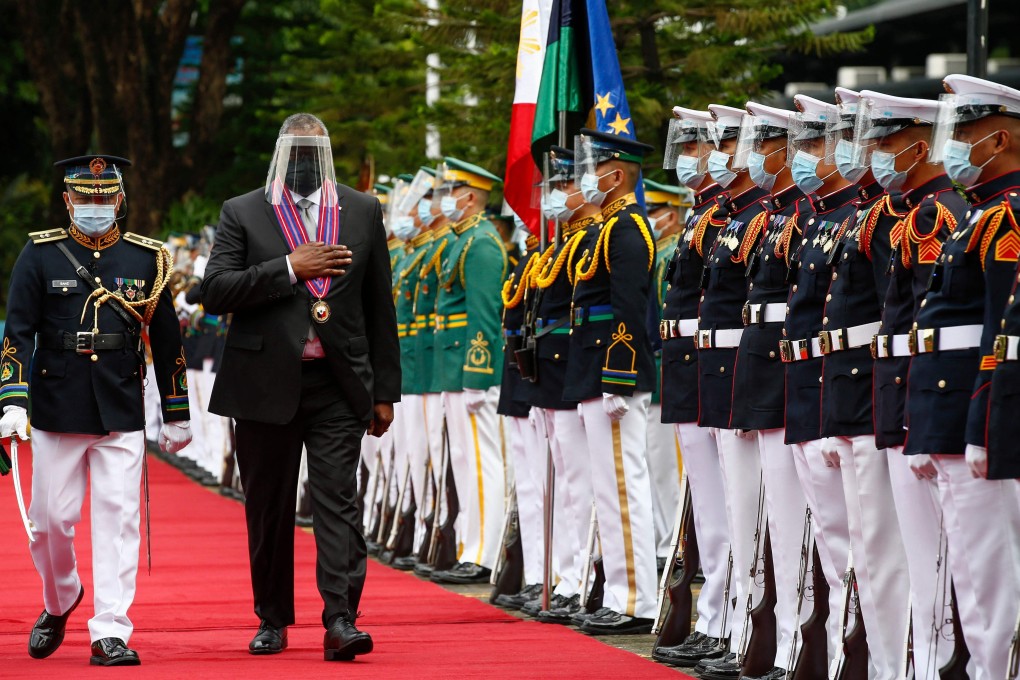Advertisement
Philippines’ Visiting Forces Agreement with US in full force after Duterte ‘retracts’ termination letter
- Duterte had threatened to cancel the VFA that allows for the rotation of US troops in and out of the Philippines
- After meeting with Pentagon chief Lloyd Austin, he decided against doing so, ensuring stability in Washington-Manila ties as the US tries to counter China’s rising influence
4-MIN READ4-MIN
24

The Visiting Forces Agreement (VFA) that allows American soldiers to conduct military exercises on Philippine soil is once again in full force after President Rodrigo Duterte “retracted” a previous letter notifying Washington he was terminating it.
Duterte arrived at the decision after meeting with US Defence Secretary Lloyd Austin in Manila on Thursday.
Speaking to reporters at the Philippines armed forces headquarters on Friday, with Austin by his side, Philippines Defence Secretary Delfin Lorenzana said Manila had submitted a termination letter to Washington stating that the VFA would end in six months. However, this six-month period was extended several times.
Advertisement
“That letter has been retracted as if nothing happened,” Lorenzana said.
“The VFA is in full force again. There is no termination letter pending and we are back on track,” he added.
Duterte’s decision to do away with terminating the VFA, which came into force in 1999, effectively does not change anything on the ground since the deal that provides rules for the rotation of thousands of US troops in and out of the Philippines for war drills and exercises, was never cancelled.
Advertisement
Select Voice
Select Speed
1.00x